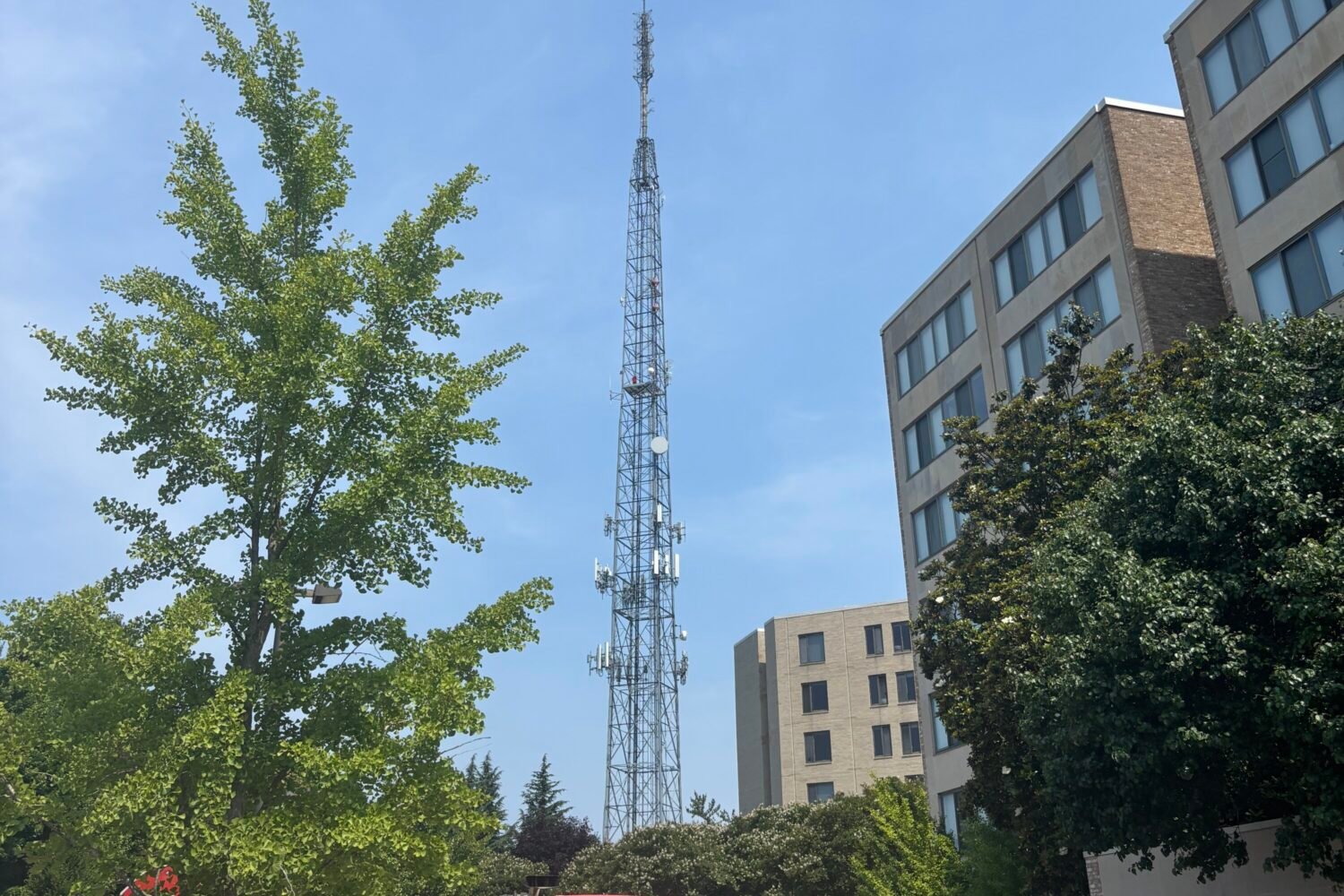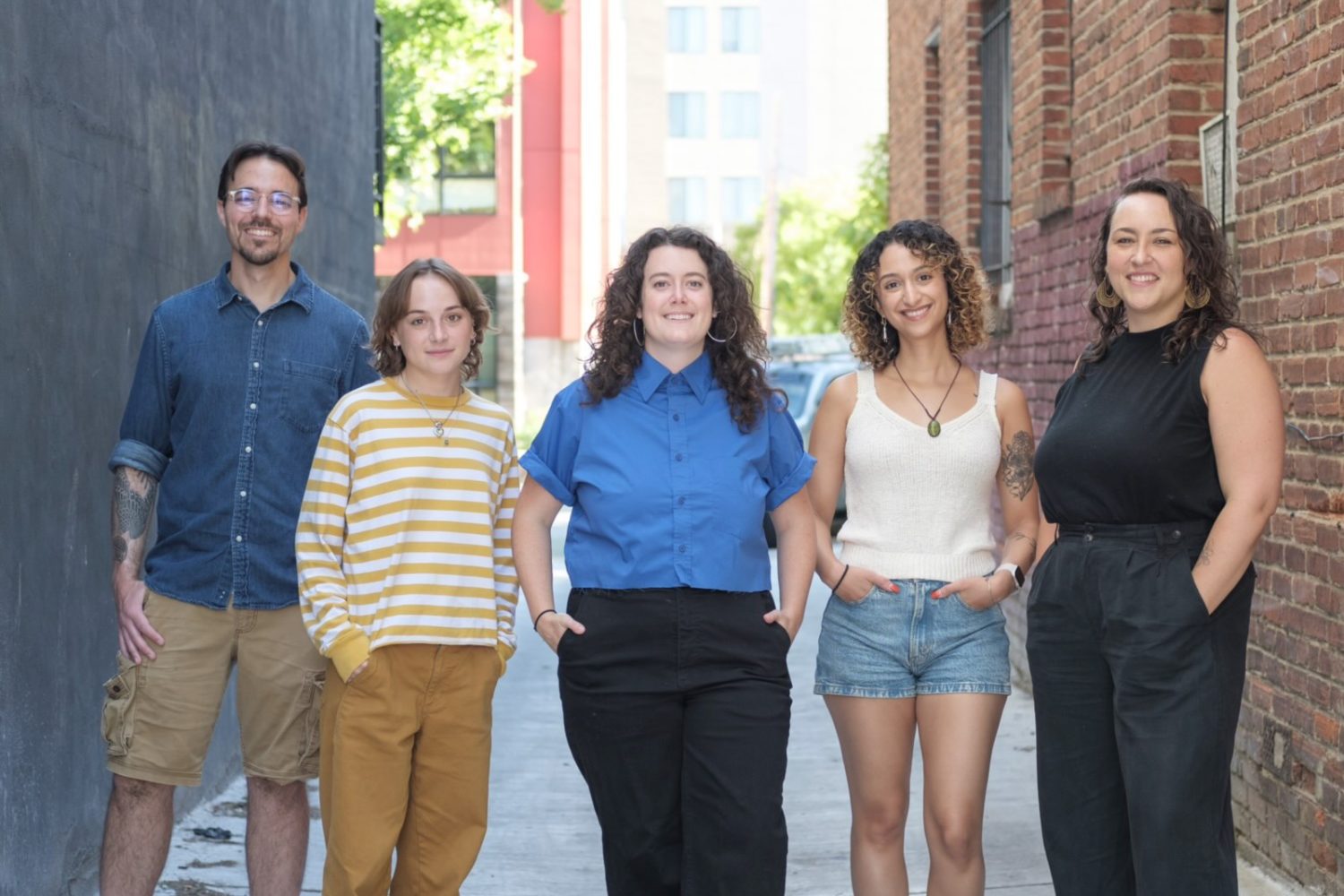WAMU has dismissed senior managing editor Zuri Berry and senior editor Jeffrey Katz as a result of investigations into the public radio station’s culture. An email to staff on Friday from chief content officer Monna Kashfi (below) didn’t name the employees WAMU let go and said the firings reflected “ongoing efforts to improve our workplace culture.” Berry, who is suing the station, quickly sent out a statement to press (also below), and Katz confirms to Washingtonian that he the other person to depart.
“This is not what I believed the outcome would be,” Berry writes in his statement, which goes on to criticize American University’s response to his suit. Katz tells Washingtonian he found the decision “particularly disappointing.” (His full statement, too, is below.)
These moves follow a turbulent 2020 at the station that included a newsroom reorganization (in which Katz stepped down as news director), allegations of misconduct against former reporter Martin Di Caro, and the departure of general manager JJ Yore. Berry sued over a report in the public media watchdog Current that said some staffers blamed him for creating a hostile work environment, especially for women of color—something he alleges is “a lie propagated by a white woman who targeted three different people of color on staff” in his statement.
Here’s Kashfi’s memo:
Dear WAMU colleagues,
I wanted to inform you that as of today, two WAMU staff members are no longer employed at the station or by American University. While we cannot discuss individual employment matters, I wanted to share this news as part of our ongoing efforts to improve our workplace culture. The work responsibilities of the two staff members have been redistributed and we are supporting the teams involved to help them continue their important work.
As has been highlighted in recent trainings and communications, we thoroughly investigate all employment-related matters or complaints, and take actions as necessary in accordance with our staff personnel policy manual. Our staff are essential to our mission, and both WAMU and American University are committed to a positive and productive workplace for all team members.
I truly appreciate all of your contributions to enhancing the station’s operations and continuing our important work and service to the community. Thank you for your dedication and commitment.
Sincerely,
Monna
Here’s Berry’s statement:
My lawsuit against American University, Current and others continues as we await the judge’s decision on whether to allow for discovery and the deposition of defendants and others.
I want to thank the many people who have reached out to me over the past seven months, including WAMU staffers, who have offered their support, kind words, or just their ear. I truly appreciate you.
This is not what I believed the outcome would be. Naively, I believed that as the facts pertaining to my interactions with staff members came to light, I would be exonerated. And once I began to defend myself legally, I didn’t anticipate that so many people at WAMU — goosed by their employer American University — would make statements meant to further disparage and defame me and would be so bold as to lie in court documents. According to them, I yell often, I micromanage people, I am a poor communicator, I hover over people “menacingly,” I am “condescending,” and I target women and women of color in particular.
It’s all preposterous with no basis in fact. The most hurtful of these claims is that I targeted women of color. This was anonymously quoted in Current and repeated in court documents. It is a lie propagated by a white woman who targeted three different people of color on staff. I consider this to be a brazen form of racism.
Any meaningful look at the interactions I’ve had with WAMU’s staff reveals that I’ve had many tough conversations across the board, normal disagreements about process and editorial judgment, and small oversights that can be expected of any manager. No unbiased observer could look at the way I’ve conducted myself and find that I acted poorly, or that I erred, or that I had any malicious intent, let alone bias.
The statements by WAMU staff involved in the investigation and lawsuit have been disappointing, but not just because of the many falsehoods and exaggerations they contain. In a continuation of what Current/American University has already done, these statements have managed to erase my own blackness, wipe away the many indignities I endured working alongside the defendants, minimize the harm perpetuated by the defendants and their contributions to a poor working environment, and project upon me their own biases.
That is the big lie here, told over and over again, through the careful omission of facts, context, and key witnesses to these events.
The purveyors of these lies are current and former staff members of a journalistic institution, but they are not defending the truth as you would expect of someone in their profession — which requires a measure of transparency that they are unwilling to subject themselves to. That is another sad reality here.
There is no recourse for this except through the courts, where we will challenge these statements and assertions — if we’re allowed — and continue to sort fact from fiction.
And here’s Katz’s:
I’ve always taken my role as a newsroom manager seriously and felt great responsibility to those I worked with. So this decision by WAMU and American University is particularly disappointing. I took care throughout my tenure to act with the same high ethical standards and integrity I’ve shown in other newsrooms throughout my career.
Recruiting and promoting a more diverse group of reporters and editors to WAMU was a priority for me and for the station. And I met it. I also met with, listened to and responded to the concerns of all of the journalists on the team, and brought those concerns to management and human resources officials.
Many people who’ve worked with me over the years at WAMU and elsewhere directly expressed their appreciation for the support I’ve provided, both professionally and personally. I will always be grateful to those who did see integrity in my newsroom management and let me know how they felt. I will miss working with the staff at WAMU and I’m confident they will continue to perform at the highest standards.
Correction: This post originally described Kashfi’s title as “interim”–she’s now chief content officer, no further modifier necessary.


















